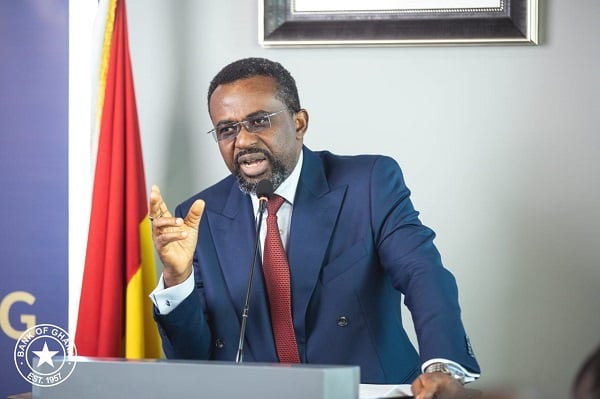Governor of the Bank of Ghana, Dr. Johnson Asiama, has announced a dramatic turnaround in the fortunes of the Ghanaian Cedi, revealing that the currency has appreciated by more than 42% so far in 2025, almost erasing the sharp declines suffered over the past two years.
Delivering remarks at the Graphic Business/Stanbic Bank Breakfast Meeting in Accra on Tuesday, July 15, Dr. Asiama described the development as a strong signal of Ghana’s improving macroeconomic stability.
He attributed the gains to sustained policy discipline, solid foreign reserve buffers, and renewed investor confidence in the country’s economic outlook.
“The Ghanaian Cedi has appreciated by over 42% year-to-date as of June 2025, reversing nearly all the losses incurred in 2022 and 2023,” Dr. Asiama declared, adding that the recovery reflects a clear shift in the country’s economic trajectory.
He noted that Ghana’s fiscal and monetary management has significantly improved, resulting in a firmer currency and stronger balance of payments performance.
Backing the recovery with data, Dr. Asiama disclosed that Ghana’s gross international reserves have surged to $11.1 billion as of June 2025—up from $8.98 billion at the close of 2024—providing 4.8 months of import cover.
“Gross international reserves now stand at $11.1 billion, providing 4.8 months of import cover, up from US$8.98 billion at the end of last year,” he said.
Dr. Asiama also pointed to Ghana’s impressive trade performance in the first quarter of 2025. The country recorded a trade surplus of $4.14 billion, with significant growth in gold, cocoa, and oil exports. The current account surplus jumped to $2.12 billion, compared to just $66 million during the same period in 2024.
“We recorded a trade surplus of US$4.14 billion in the first four months of 2025, with exports growing by over 60%, mainly from gold, cocoa, and oil. The current account surplus improved significantly to US$2.12 billion in Q1 2025, compared to just US$66 million a year earlier,” he explained.
Remittance flows have remained steady, he added, and Ghana’s ongoing IMF-supported reform programme has led to multiple favorable assessments and a credit rating upgrade from S&P—from Selective Default to CCC+.
“These outcomes represent more than just statistical improvement. They are a restoration of macroeconomic credibility, the kind that markets, investors, and citizens respond to with confidence,” Dr. Asiama affirmed.
The Governor’s remarks come amid growing optimism about Ghana’s economic prospects as the country steadily emerges from years of volatility driven by global headwinds and internal fiscal challenges.


